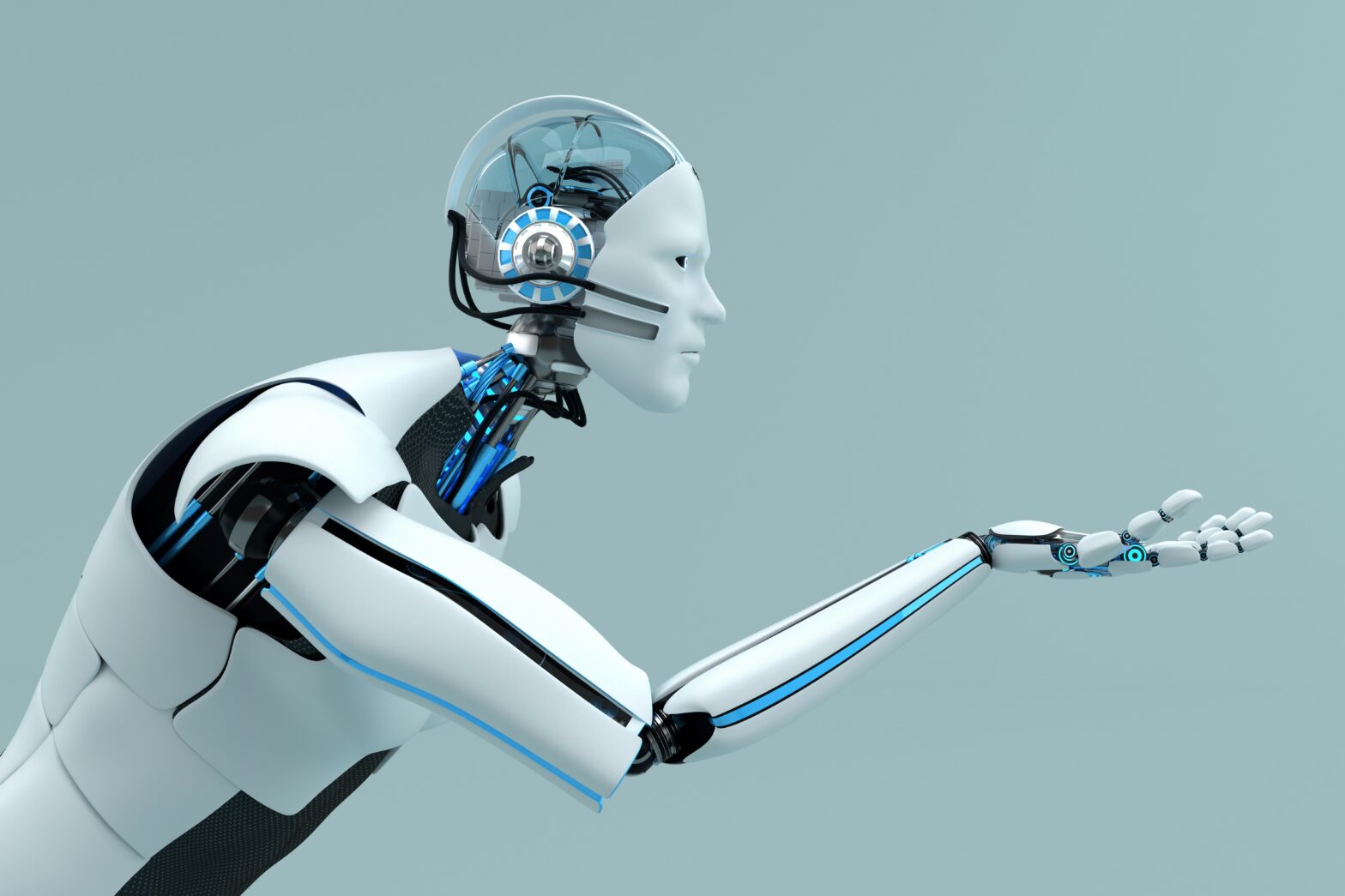ChatGPT is not yet a year old, but it’s revolutionising everything from Hollywood scriptwriting to how students cheat on their homework. AI medicine is here – with DeepMind decoding the entire universe of 200 million protein structures with its predictive engine AlphaFold. We’ve got AI healthcare and even AI-enabled coffee machines. These are just some of the ways artificial intelligence is impacting consumers.
So, what’s next?
Information Age asked five world-renowned thinkers to look five years from now. Here are their thoughts on AI in the year 2028.
#1 Your life is run by Jeffrey, your secretarial AI

Alwin Magimay, global head of AI at PA Consulting, a global professional services company
Our digital twin, let’s call ‘it’ Jeffrey, will be our ever-present personal assistant, a new era of human-machine symbiosis, an intelligent cohabitant, transforming our lives. Jeffery isn’t just a machine carrying out programmed instructions. It learns, evolves, and adapts over time, like a human.
Our Smart Home, managed by Jeffrey, will adjust lighting, temperature, even whip up our favourite meals, not based on pre-set instructions, but by intuitively learning from our habits, moods, and preferences.
In healthcare, Jeffrey won’t replace human doctors but will empower us to take proactive control of our health. Jeffrey, armed with real-time health insights, enables a new era of preventive and personalised medicine, augmenting our capabilities to maintain and improve our wellbeing.
AI start-up founders reveal artificial intelligence trends for 2023 – With artificial intelligence (AI) innovation surging across business, we gauge the views of AI start-up founders on the biggest trends in the space this year
In transport, Jeffrey with its quantum computing data processing capabilities, will ensure safer, more efficient journeys in autonomous vehicles, freeing up our commuting time for leisure, personal growth, or relaxation.
Jeffrey will become our financial adviser. He won’t just manage our finances but will augment our decision-making, offering personalised advice, decoding market trends, and encouraging healthier financial habits.
In education, Jeffrey will enhance the role of teachers rather than replacing them. By understanding our unique learning strengths and weaknesses, Jeffrey will curate personalised education, helping us explore and grasp subjects in ways that best suit our learning styles.
It will be crucial to address the ethical considerations that accompany these developments. We must ensure that our reliance on digital twins doesn’t compromise our privacy, autonomy, or data security. Policy and regulation must strike a balance between personalisation and privacy.
Jeffrey is a symbol of the promise of augmented intelligence – not as a replacement for our abilities but as a “hyper-personalised extension”. Jeffrey represents a world where our human potential is amplified, unlocking possibilities for greater efficiency, personalisation, and creativity. This future, powered by AI, will open a door to a new and rewarding human experience.
What top tech leaders are saying about artificial intelligence – With artificial intelligence (AI) rising up the corporate, regulatory and societal agendas, we gauge the views of the key tech leaders in the space
#2 Dr Robot will see you now

Kunal Purohit, chief digital services officer, Tech Mahindra, one of the world’s largest technology consultancies
AI’s application in healthcare holds great promise for the next decade. Diagnostics will be a major growth area, as AI-powered systems can quickly and accurately analyse vast data sets, leading to more precise diagnoses and personalised treatment plans. AI can also monitor patients’ health and predict potential health issues before they manifest.
AI will also play a key role in diagnostics. MRIs, CT scans, and X-rays can all be analysed using machine-learning algorithms with remarkable accuracy. AI will enable healthcare providers to detect subtle patterns and anomalies that are difficult for humans to detect, facilitating early and more accurate diagnosis. As a result of this early detection, lives will be saved, and healthcare costs will also be reduced.
As generative AI matures, it might merge with other emerging technologies such as virtual and augmented reality or other forms of AI, revolutionising healthcare delivery. For instance, healthcare providers could create branded visual avatars with their likeness and voice, allowing patients to interact with them. Physicians could compare their treatment approaches with a patient’s full medical history and those of similar patients who achieved positive outcomes. Although these ideas might seem farfetched, the fast advancement of generative AI shows that they could become a reality in the near future.
#3 Mind-reading credit cards

Wendy Li, SVP of Emerging Technologies at Marqeta, a card issuing platform
In the next five years, I expect we may see a rise in new credit options and alternatives, such as “Predictive Credit Cards,” where AI anticipates a consumer’s spending needs based on their past behaviour and adjusts the credit limit or offers tailored rewards accordingly.
Additionally, fintechs are likely to integrate Large Language Models (LLMs) and add AI to digital and machine-learning powered services. As a result, AI will not only meet fresh consumer demand for credit options but will revolutionise the process of applying for and obtaining credit.
Through AI, consumers may also be able to access a better overview of their finances, specifically personalised financial rewards, as they would have access to tools to review all transactions, receive recommendations on personalised spend-based rewards, and even benchmark themselves against other cardholders in similar demographics or industry standards.
Consumers may also be able to ask questions and get answers at the click of a button, for example, ‘How much debt do I have compared to your available credit limits?’ or ‘What’s the best way to use my rewards points based on my recent purchases?’ improving financial literacy and potentially providing them with more spending/saving power and personalised experiences in the long run.
We’ll likely see the power shift away from providers and into consumers’ hands, as AI technology will provide a deeper and more immediate understanding of an individual’s financial situation, removing many of the time-consuming and arduous steps to accessing credit and potentially leading to greater financial inclusion and economic empowerment.
#4 ChatGPT replaces teachers

Jeff Watkins, chief product and technology Officer at xDesign, a software development company
In recent times, generative AI platforms such as ChatGPT have shown us the power of the technology’s content creation abilities. In the next five years, this tech will become so much more sophisticated, allowing educational institutions to create whole courses in a fraction of the time based on existing knowledge bases.
Given its potential capabilities around the translation of learning materials into multiple languages, ChatGPT and other LLMs will also turbocharge the creation and distribution of related course materials to not only national, but global audiences too.
The technology will even be able to transcend cultural differences, meaning multiple students can learn together regardless of language or geographical location. As a result, it’s likely the sector’s overheads will reduce substantially, meaning further democratisation of education on a global scale.
#5 Movie or computer game? Both!

Max Kraynov, group CEO of entertainment app company FunCorp, a games developer
I anticipate a merger of movies and AAA video games, targeted at each individual user.
As AI is incapable of producing something wholly new, continually pulling from existing content, consumers will still demand entertainment which stems from creative thinking by our human peers, and not influenced by AI. After all, new ideas, worlds, and new means of making sense of the world are, and will always safely be, in the hands and minds of humans.
In five years’ time however, the ratio of human to AI-generated entertainment is likely to decrease, as bigger companies potentially reduce human/employee expenses for profit margins. This could mean a period of mass-produced, lower-quality content, and consumer backlash, decrying the lack of originality.
Further reading
The history of the chatbot: Where it was and where it’s going – The history of chatbot software goes back decades, and now its application is making its mark on the enterprise







